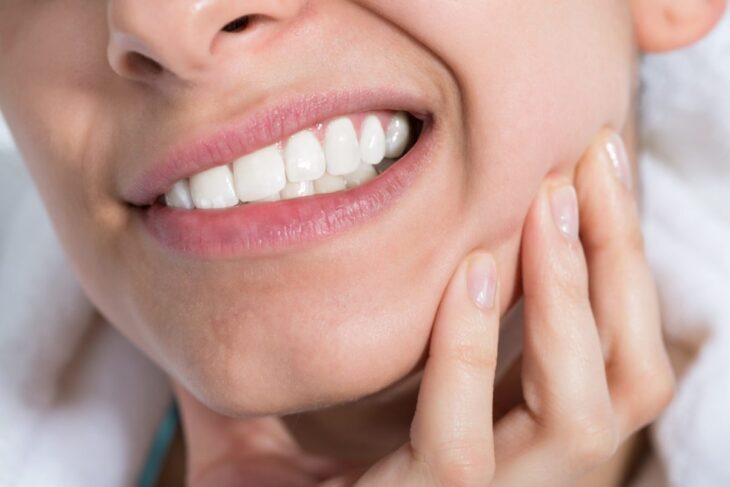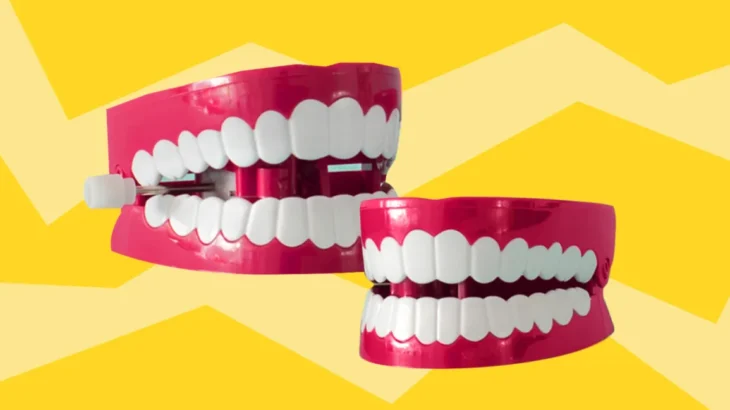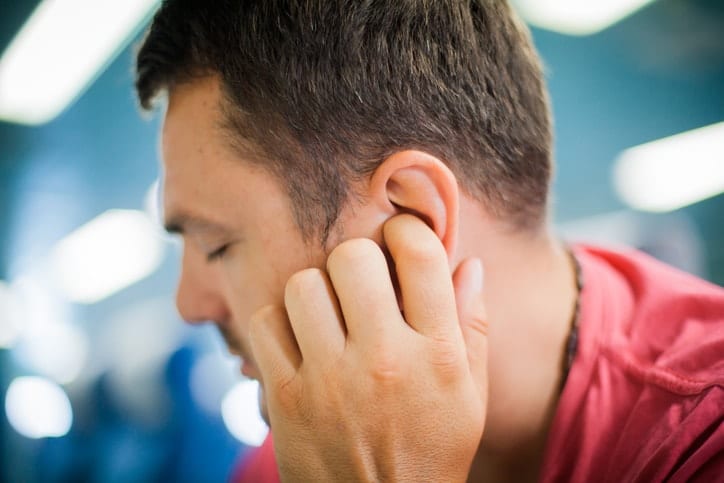There are a few things you shouldn’t do at night: eat heavy foods, drink alcohol, and grind your teeth. Unfortunately, many of us are guilty of doing the latter without even being aware of it.
Teeth grinding is a condition medically known as bruxism, in which you clench your jaw and grind your teeth (either clenched together or apart). People who experience bruxism aren’t even aware of it because it happens at night.
The causes of bruxism vary from person to person, but stress and anxiety are often the culprits.
If you’re someone who grinds their teeth at night, there’s no need to panic — we’ve got some helpful tips on how you can manage the situation. But first, let’s take a look at the harmful effects of nighttime teeth grinding:

Source: interdent.com
Contents
1. Worn or Fractured Teeth
The first and most obvious effect of chronic teeth-grinding is damage to your teeth. The constant pressure placed on your teeth due to excessive clenching can wear them down, making them more susceptible to fractures, chipping, and breakage. In extreme cases, the dentin layer of your teeth may be exposed as well.
If you continue to grind your teeth, they will wear down until they become loose and eventually fall out. This is especially common for older adults who have lost most of their enamel over time due to age-related conditions like gum disease or dry mouth.
Losing multiple teeth also affects your appearance and how you eat and speak correctly, so it’s essential to prevent further damage before it gets this far.
2. Tooth Pain or Sensitivity
As explained earlier, teeth grinding will cause your teeth to get worn down over time. This can lead to tooth sensitivity or even tooth loss in severe cases.
When you grind your teeth against each other, you wear away at the enamel, which can cause pain when eating hot or cold foods and chronic toothaches. Tooth sensitivity can make it difficult to enjoy yourself when eating or drinking, as every sip of coffee or ice cream cone.

Source: greatist.com
3. Jaw Pain and Headaches
It can cause severe jaw pain due to the pressure placed on your jaw muscles while you’re asleep. The general term for this condition is temporomandibular joint (TMJ) disorder, making it difficult to open and close your mouth because of soreness and inflammation in your jaw muscle.
When people grind their teeth while they sleep, they may experience headaches when they wake up. Chronic headaches may also occur later on during the day. These headaches often originate in the temples or behind the eyes due to stress on the muscles associated with chewing.
However, note that these headaches tend to happen after someone has ground their teeth for an extended period and with some frequency.
4. Ear Pain
One of the most common symptoms associated with sleep bruxism is ear pain. Unfortunately, many people who experience ear pain are misdiagnosed with an ear infection because the inflammation caused by teeth grinding is often mistaken for an ear infection.
If you have ear pain and do not have an active infection, then ask your doctor about whether or not you may be suffering from bruxism.

Source: newyorkent.com
5. Sleep Difficulties
It may occur during the day or at night, but it’s more likely to happen at night while you’re sleeping. The sound can be disruptive to your or your partner’s sleep. It can also prevent you from getting enough deep sleep, essential for health and growth.
Bruxism may also cause jaw clenching during the day, making it difficult to concentrate or relax.
Remedies for Teeth Grinding
While there are many potential causes of teeth grinding, stress is one of the most common. Teeth grinding can be quite damaging to your teeth and jaw, so it’s essential to look for ways to prevent or stop it.
Teeth Guard
It easy to get — and relatively inexpensive. They can be bought in pharmacies, mouth-guard retailers, or dental supply companies. They can also be custom-made by your dentist.
There are two types of teeth guards:
Stock mouthguards are pre-formed and ready to wear. They provide the least amount of comfort and protection but cost the least.
Mouth-formed guards provide better comfort than stock mouthguards. You need to boil the mouthguard until it is soft enough to bite into and mold around your teeth. These forms fit better than stock mouthguards but still do not match the comfort and protection of custom-made devices from your dentist’s office.
Custom-made mouthguards are specifically designed and made based on a model of your teeth. They offer the most comfort, protection, retention, speech ability, and durability.
Click here to find out the best custom night guards to help you manage your bruxism.

Source: expatliving.hk
Stress and Anxiety Management
Stress and anxiety are the most common causes of teeth grinding. Sometimes people do it without being aware of it. Often, a sleeping partner will hear the grinding before the person doing it realizes they have a problem.
If you believe the cause of your teeth grinding is stress-related, consider some relaxation techniques to help you wind down before bedtime, such as meditation or gentle yoga. You could also try talking to a therapist.
Some research suggests that cognitive-behavioral therapy (CBT) can help treat bruxism by changing negative thought patterns that contribute to stress and anxiety.
The Final Word
Many people suffer from teeth grinding. When teeth grinding occurs regularly, tooth damage and other potential health complications are more likely.
The exact reason why some people grind their teeth is not entirely understood. Stress or anxiety may cause some people to grind their teeth. Others may grind their teeth as a habit or during sleep. It may also respond to an abnormal bite or missing or crooked teeth.
See your dentist if you think you might be grinding your teeth at night. Your dentist will examine your mouth for signs of tooth wear and will ask questions about your medical history and symptoms. A dental appliance (night guard) can help protect your teeth from the effects of grinding during sleep.
